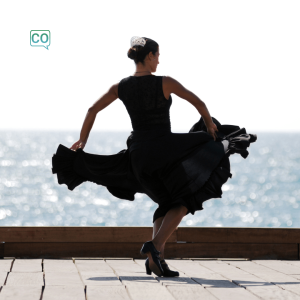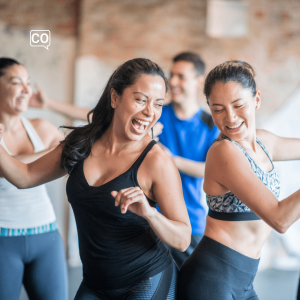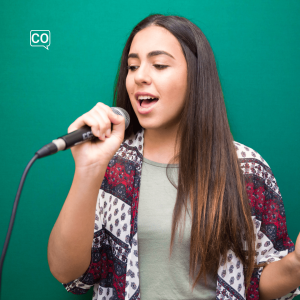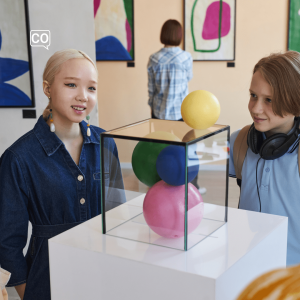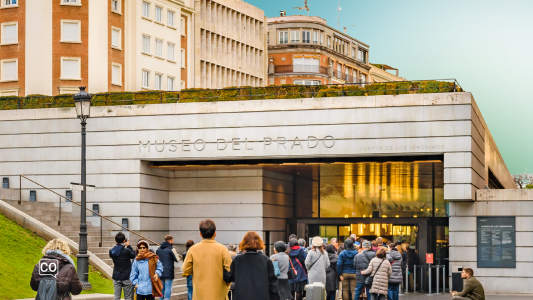Música y arte

Learning goals:
- Hablar sobre música y arte (Talk about music and art)
- Diferentes formas de arte (Different art forms)
- Describir preferencias (Describing preferences)
- El Museo del Prado (The Prado Museum)
Learning module 6 (A1): La ciudad y el pueblo (The city and the village)
Recap exercises of the previous lesson
Teaching guidelines +/- 60 minutes
Core vocabulary (11)

Me gusta ir al cine los fines de semana.
(I like to go to the cinema on weekends.)
El cine
(The cinema)
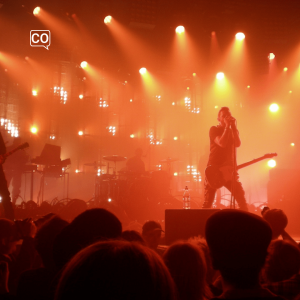
El concierto empieza a las ocho en el teatro.
(The concert starts at eight in the theatre.)
El concierto
(The concert)
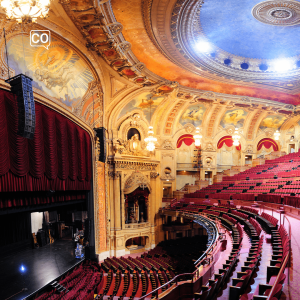
Hoy vamos a ver una obra en el teatro.
(Today we are going to see a play at the theatre.)
El teatro
(The theater)
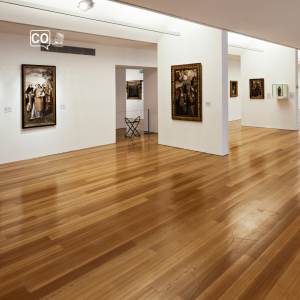
Me gusta visitar el museo en el centro para ver la exposición de arte.
(I like visiting the museum in the city centre to see the art exhibition.)
El museo
(The museum)
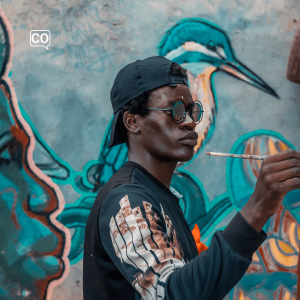
La artista canta en un concierto en el teatro.
(The artist sings in a concert in the theatre.)
El artista
(The artist)

Me gusta la exposición en el museo.
(I like the exhibition at the museum.)
La exposición
(The exhibition)

Me gusta mucho el espectáculo de música en el teatro.
(I really like the music show at the theatre.)
El espectáculo
(The show)
Listening materials
Our listening materials implement the verbs, vocabulary and grammar topics of this lesson. Audio and video available!
A1.44.1 Diálogo: ¿Qué haces el fin de semana?
Spanish A1.44.1 What are you doing this weekend?
Ana y Pedro hablan sobre sus planes del fin de semana.
(Ana and Pedro talk about their weekend plans.)
Teaching guidelines +/- 15 minutes
A1.44.2 Gramática: Describir preferencias
Spanish A1.44.2 Describing preferences
A1.44.3 Cuento corto: ¡Vamos a ver una exposición!
Spanish A1.44.3 Let's go see an exhibition!
Aprendemos sobre las distintas disciplinas del arte.
(We learnt about the different disciplines of art.)
Teaching guidelines +/- 15 minutes
A1.44.4 Cultura: El Museo del Prado
Spanish A1.44.4 The Prado Museum
Descubre el museo más conocido de España.
(Discover the most well-known museum in Spain.)
Teaching guidelines +/- 10 minutes
Exercises
These exercises can be done together during conversation lessons or as homework.
Exercise 1: Find the words
Instruction: Find the words, mark them and make sentences with the words.
Show answers Show hintsHints
The art , The theater , The show , The exhibition , The cinema , To sing
Answers
Score: 0/6
| Cantar | (To sing) |
| El teatro | (The theater) |
| El cine | (The cinema) |
| El espectáculo | (The show) |
| La exposición | (The exhibition) |
| El arte | (The art) |
Exercise 2: Reorder sentences
Instruction: The words in these sentences have been shuffled! Sort them so that they make a valid sentence again and translate.
Show answers Show translationExercise 3: Translate and make sentences
Instruction: Translate the words and phrases below and use it in a conversation or text.
Show answersExercise 4: Translate and use in a sentence
Instruction: Translate and say the word out loud. Use the word in a sentence.
Show translation|
1.
Bailar
|
(To dance) |
|
2.
El espectáculo
|
(The show) |
|
3.
El arte
|
(The art) |
|
4.
El cine
|
(The cinema) |
|
5.
El artista
|
(The artist) |
Exercise 5: Conjugación verbal
Instruction: Choose the correct word, read the sentence out loud and translate.
Show answers Show translationCantar (Pretérito perfecto, indicativo), Bailar (Pretérito perfecto, indicativo)
1. Nosotros ... con la madre de luis.
2. Vosotros ... en el cumpleaños.
3. Él ... en el parque.
4. Tú ... en la fiesta.
5. Ellos ... toda la noche.
Exercise 6: Describing preferences
Instruction: Choose the correct word, read the sentence out loud and translate.
Show answers Show translationtampoco, amáis, odian, también, Prefiero, no, preferimos
1. ¿No te gustan estos bailes? A mí ....
2. Nosotros ... ir al cine que ver una exposición.
3. ¿A Catarina le gusta el arte? A mí .... No me parece interesante.
4. No te interesan museos, ¿verdad? A mí ... me interesan.
5. Ana y Jaime ... ir a los conciertos.
6. Vosotros ... ver las exposiciones, ¿no?
7. ... ir al concierto que escuchar música en casa.
8. ¿A Amalia y a Eva les interesan bailes? ¡A mí ...!
Exercise 7: Translate and make sentences
Instruction: Translate the words and phrases below and use it in a conversation or text.
Show answersAppendix 1: Extended vocabulary table
Core vocabulary
(11):
Verbs: 2,
Nouns: 9,
Context vocabulary:
4
| Spanish | English |
|---|---|
| Artistas | Performers |
| Bailar | Dance |
| Cantar | Sing |
| El arte | The art |
| El artista | The artist |
| El baile | The dance |
| El cine | The cinema |
| El concierto | The concert |
| El espectáculo | The show |
| El museo | The museum |
| El teatro | The theater |
| Espectáculos | Shows |
| Exposiciones | Exhibitions |
| La exposición | The exhibition |
| Pinturas | Paintings |
Appendix 2: Verb conjugation tables for this lesson
Bailar (to dance)
Exercises and examples phrases
- yo he bailado I have danced
- tú has bailado you have danced
- él/ella ha bailado he has danced
- nosotros/nosotras hemos bailado we have danced
- vosotros/vosotras habéis bailado You have danced
- ellos/ellas han bailado They have danced
Cantar (to sing)
Exercises and examples phrases
- yo he cantado I have sung
- tú has cantado You have sung
- él/ella ha cantado he/she has sung
- nosotros/nosotras hemos cantado we have sung
- vosotros/vosotras habéis cantado you have sung
- ellos/ellas han cantado They have sung
Exercise: Verb conjugation
Instruction: Choose the correct word, read the sentence out loud and translate.
Show answers Show translationBailar (Pretérito perfecto, indicativo), Cantar (Pretérito perfecto, indicativo)
1. Tú ... en la fiesta.
2. Yo ... en la plaza con pedro.
3. Él ... con maría.
4. Ellos ... en el restaurante.
5. Ellos ... toda la noche.
